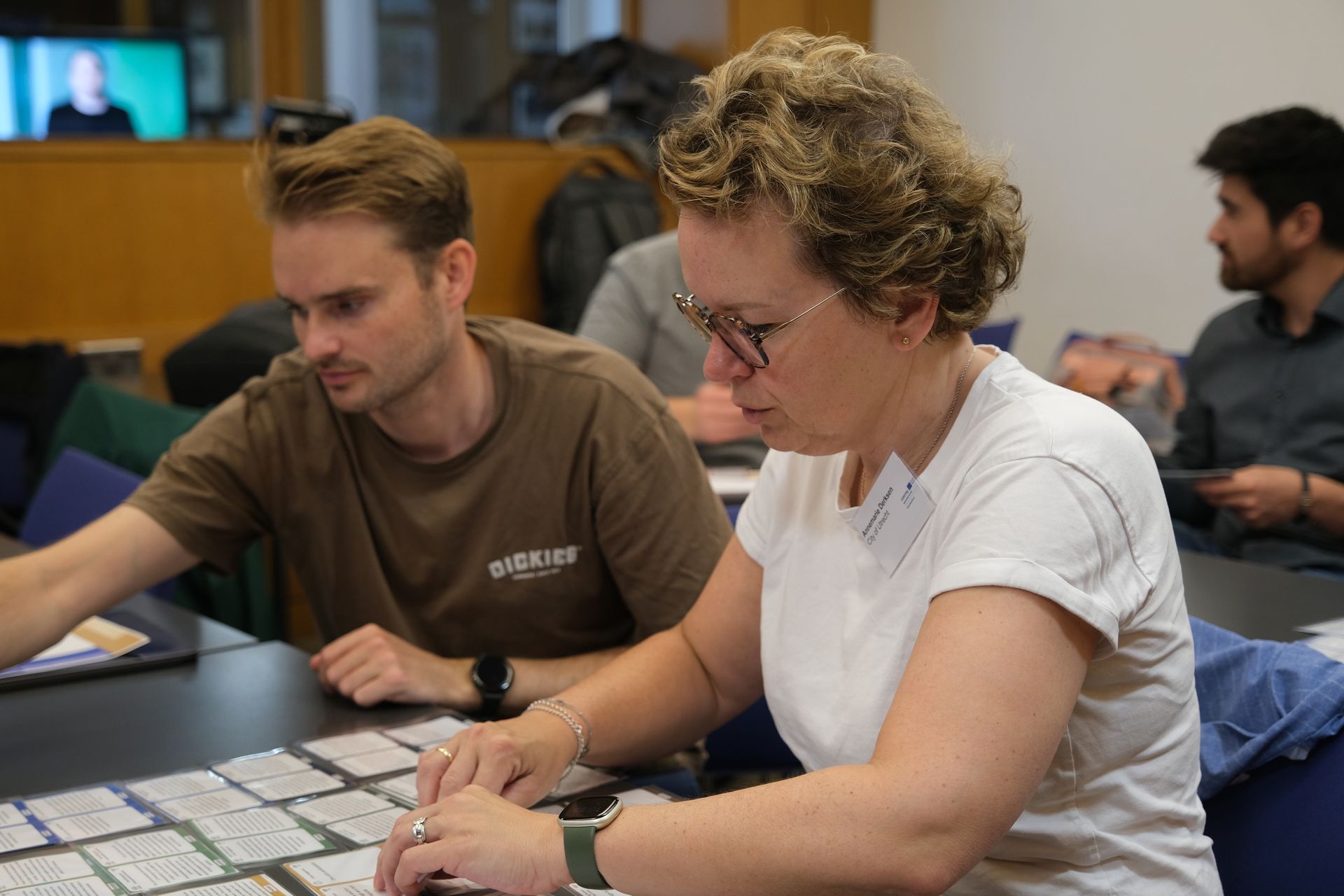On June 12, partners from across Europe gathered in Dublin to shape the future of learning within the T4R project. Lecturers and researchers Willem-Jan Renger and Evert Hoogendoorn from HKU University of the Arts Utrecht, together with the K8 Institute for Strategic Aesthetics (Germany) and All Digital (Belgium), presented the first outline of a new training academy.
This academy will equip trainers from eight European pilot partners with the tools to guide their teams in developing Local Digital Twins. The approach is based on Micro Learning Units (MLUs), a flexible and modular form of professional learning.
Co-creating
learning journeys
In T4R,
trainers from each pilot partner will design tailored learning journeys
based on 72 MLUs. Evert explains: “For these trainers, our metaphorical ‘tour
guides’, HKU developed a toolset with 72 cards, one for each MLU,
enabling them to string together learning sequences. We also created sample
elaborations for five MLUs to inspire partners on how to translate the base
documents into didactic tools.” In Dublin, the two HKU lecturers, together with
partner K8, led three workshops to explain the concept of ‘MLU journeys’ and
get trainers from all cities actively engaged.
Four
categories, three levels
The 72 MLUs span four frameworks (Training, Governance, Ethic, Inclusion
& Democracy, and Technical Design), the knowledge base civil servants need
to work responsibly with Digital Twins.
Each framework offers content at beginner, intermediate, and expert levels. Willem-Jan notes: “Each partner can build a learning journeys based on local needs, selecting from the four frameworks and three difficulty levels. We explicitly encourage partners to design and offer ‘blended’ journeys.” For instance, a technical developer might take expert-level units from the Technical Framework, alongside beginner-level units from Governance or Ethics. “The goal is to improve and facilitate conversations among specialists from very different fields of expertise.”
Team members working on building a learning journey during the workshop in Dublin
Next
step: an Activity Guide
In Dublin,
HKU presented the first format of the MLUs, using separate cards and canvases.
Willem-Jan: “Although the format was appreciated, there was also a desire for more
varied examples. That’s why we’ll develop an Activity Guide with
around ten engaging learning formats, ranging from individual to group work,
and for online, hybrid, and in-person contexts.” HKU will continue to support
the cities in executing and tailoring their learning journeys.
Lifelong
learning
The use of Micro Learning Units in T4R is part of a broader European shift
towards more flexible, career-long learning. The ambition is to see such
learning accredited, just like formal education, strengthening its value for
professional development.
